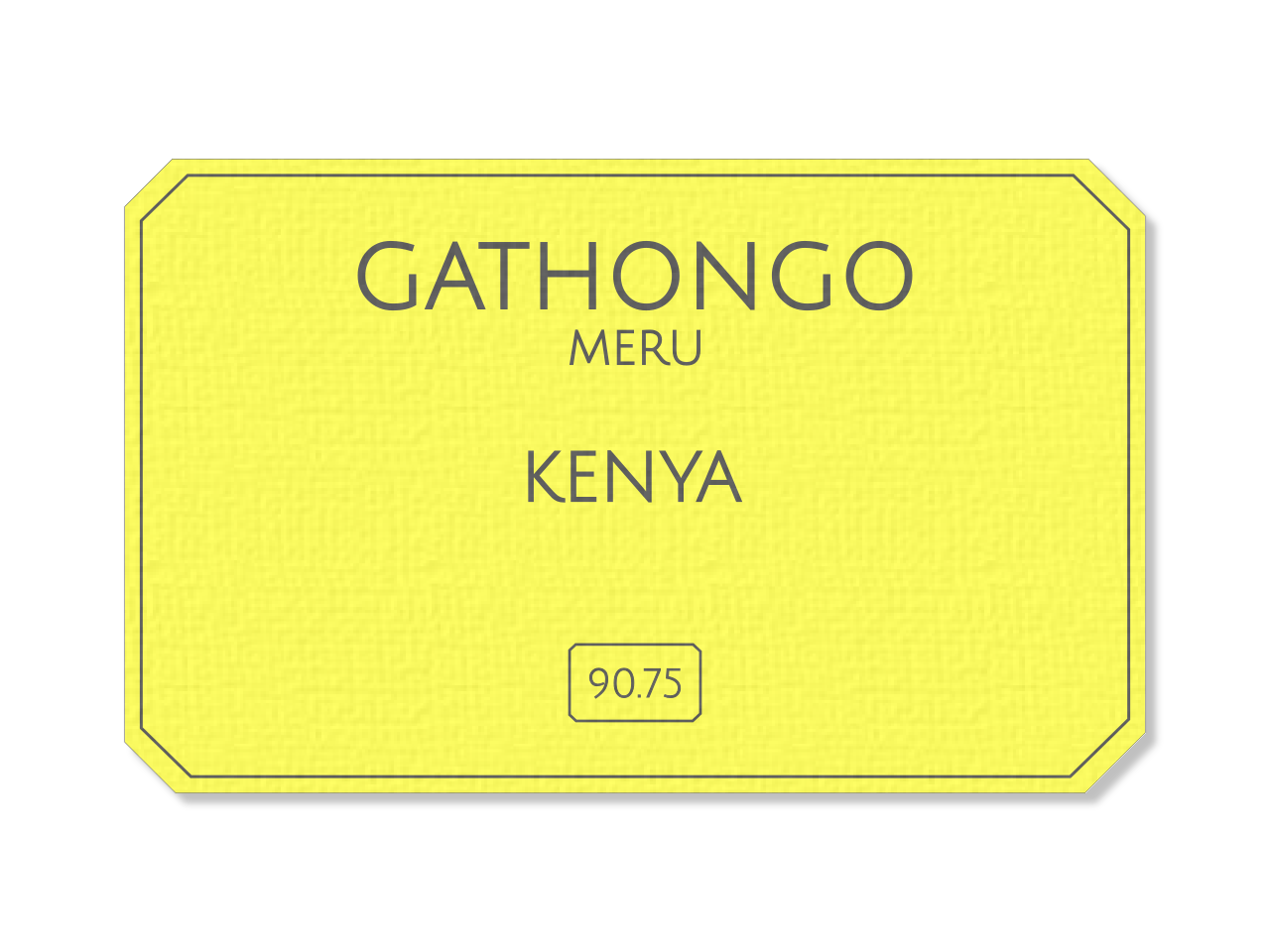CUP SCORE 90.75 (scaa cup protocol)
Red currant, lemon zest, rhubarb, cranberries, hint of pineapple
suggested for espresso and filter
PLEASE NOTE
We roast to order all coffees on Wednesday and Saturday, dispatching on next working day. Cut-off time is 8am UTC+1
Technical detail
Several small farmers Kenya
Producer Country
Meru 1800-1970 masl
Wet SL28 & SL34
November 14 July 15
6000 kg GrainPro bag
Lot size Arrived in
Self-made
Rubens Gardelli drum roaster
Roast profile by Roasted on
THE STORY BEHIND
The Gathongo factory is located in the district of Meru which was formerly in the Eastern Province of Kenya. It is affiliated to the Mariara Farmers Co-op Society along with the Kaguma, Karugwa and Mbwinjeru factories. The coop has around 1,311 active members with around 155 members involved with the Gathongo factory. Each member has on average around 1 acre of land for coffee growing alongside macadamia, beans, banana and maize. The area has deep, well drained and fertile red volcanic soil at altitudes of between 1470 and 1970 metres above sea level with 1287mm of rainfall annually.
The coffee is handpicked by the smallholder members and delivered to the Gathongo factory where it is pulped. This initially separates the dense beans from the immature ‘mbuni’s (floaters) using water floatation which means the denser beans will sink and be sent through channels to the fermentation tank. This first stage of fermentation will last for around 24 hours, after which the beans are washed and sent to the secondary fermentation tank for another 12-24 hours. Once the fermentation process is completed, the beans enter the washing channels where floaters are separated further and the dense beans are cleaned of mucilage. The washed beans will then enter soaking tanks where they can sit under clean water for as long as another 24 hours. This soaking process allows amino acids and proteins in the cellular structure of each bean to develop which results in higher levels of acidity and complex fruit flavours in the cup - it is thought that this process of soaking contributes to the flavour profiles that Kenyan coffees are so famed for.
The beans are then transferred to the initial drying tables where they are laid in a thin layer to allow around 50% of the moisture to be quickly removed. This first stage of drying can last around 6 hours before the beans are gathered and laid in thicker layers for the remaining 5-10 days of the drying period. The dry parchment coffee is then delivered to a private mill and put into ‘bodegas’ to rest – these are raised cells made of chicken wire which allows the coffee to breathe fully.



